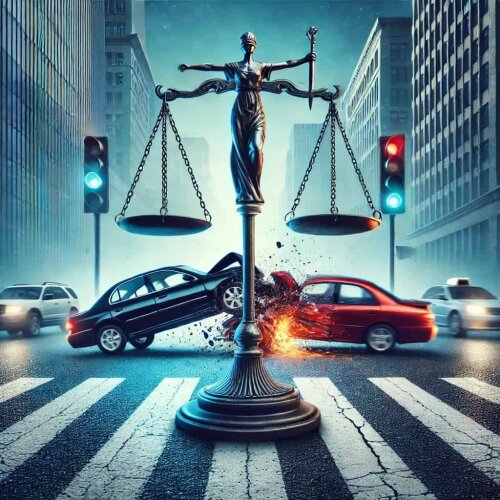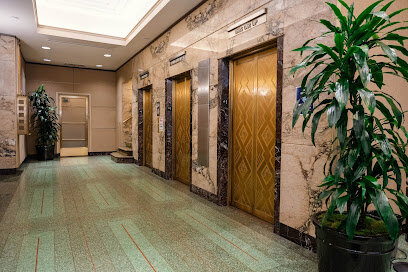Best Construction Accident Lawyers in Portland
Share your needs with us, get contacted by law firms.
Free. Takes 2 min.
List of the best lawyers in Portland, United States
About Construction Accident Law in Portland, United States
Construction sites are among the most hazardous work environments. When an accident occurs in Portland, the legal landscape is shaped by Oregon state law, local Portland permitting and inspection rules, and federal and state safety regulations. In most workplace cases the Oregon workers' compensation system provides medical care and wage-replacement benefits under a no-fault framework. Separately, injured workers or bystanders may have civil claims against third parties - for example, negligent contractors, equipment manufacturers, property owners, or subcontractors. Understanding the distinction between workers' compensation benefits and civil lawsuits - and the timing and procedural rules that apply - is essential after a construction injury.
Why You May Need a Lawyer
You may need an attorney after a construction accident for several reasons:
- Benefit denials or delays - if the employer or insurer denies, delays, or underpays workers' compensation benefits, an attorney can help appeal and secure needed medical care and income replacement.
- Third-party liability - if a non-employer third party was negligent - for example a subcontractor, equipment manufacturer, property owner, or machinery maintenance provider - an attorney can identify liable parties and pursue compensation that is not available through workers' compensation, such as pain and suffering.
- Serious or catastrophic injuries - complex claims for permanent disability, future care, and loss of earning capacity require valuation and expert support.
- Multiple responsible parties - construction sites often have several contractors and subcontractors; a lawyer can untangle liability and coordinate claims.
- Wrongful death - if a worker dies, family members may be entitled to workers' compensation death benefits and in some cases civil wrongful death claims; these claims involve strict rules and deadlines.
- Administrative and procedural complexity - filing claims, meeting strict notice and statute-of-limitations deadlines, and navigating hearings before the Workers' Compensation Board or courts are areas where legal help improves outcomes.
Local Laws Overview
Key legal features relevant to construction accidents in Portland include:
- Oregon workers' compensation system - Oregon operates a workers' compensation program that generally provides medical benefits, temporary and permanent disability payments, and vocational rehabilitation to injured workers without the need to prove employer fault. Because it is a no-fault system, workers typically cannot sue their employer for negligence in most cases.
- Third-party civil claims - Workers and non-employees can pursue ordinary negligence or product liability lawsuits against third parties whose fault caused the injury. Third-party claims can seek broader damages, including pain and suffering and full wage-loss recovery.
- Oregon OSHA - Oregon has a state occupational safety and health plan administered as Oregon OSHA. It enforces workplace safety standards and investigates complaints. OSHA or Oregon OSHA citations can be relevant evidence in civil and administrative proceedings, though a citation by itself does not automatically create a private right of recovery.
- Portland building and permitting rules - The Portland Bureau of Development Services and other city bureaus enforce local building codes, permitting, and inspection requirements. Violations of local codes or permitting procedures can be relevant to liability for construction site accidents.
- Public entity claims - If a city, county, or other public entity may be liable for an unsafe condition, special notice requirements and shorter time limits often apply. You must follow those procedures carefully to preserve a claim against a governmental body.
- Statutes of limitations and deadlines - Time limits vary by claim type. Commonly, personal injury suits against private parties are subject to a two-year statute of limitations from the date of injury, while administrative notice requirements for public entities and workers' compensation reporting deadlines can be much shorter. Prompt action is critical.
Frequently Asked Questions
What should I do immediately after a construction accident?
Get medical attention right away - your health is the priority. Report the injury to your employer as soon as possible, preserve evidence such as photos of the scene and any damaged equipment, collect contact information for witnesses, and keep copies of medical records and bills. Avoid giving recorded statements to insurers before consulting an attorney.
Do I have to report the injury to my employer?
Yes - report the injury to your supervisor or employer promptly. Timely reporting is usually required to secure workers' compensation benefits and to preserve legal rights. Follow any written procedures your employer has for reporting workplace injuries.
Can I sue my employer for a construction accident?
Generally, Oregon workers' compensation is the exclusive remedy against an employer for workplace injuries, which means you cannot normally sue your employer for negligence. However, you may be able to sue third parties whose negligence contributed to your injury. There are narrow exceptions in rare circumstances - an attorney can advise if one may apply.
What does workers' compensation cover in Oregon?
Workers' compensation typically covers necessary medical treatment related to the work injury, temporary wage-replacement benefits while you cannot work, permanent disability benefits if you sustain lasting impairment, and vocational rehabilitation services when appropriate. Death benefits are available to dependents when an on-the-job fatality occurs.
What is a third-party claim and when should I consider it?
A third-party claim is a civil lawsuit against someone other than your employer - for example, an equipment maker, a negligent subcontractor, or a property owner. You should consider a third-party claim when someone other than your employer may have caused or contributed to the injury, because such claims can provide compensation not available through workers' compensation, including pain and suffering and full lost wages.
How long do I have to file a claim?
Deadlines vary by the type of claim. Commonly, personal injury claims against private parties must be filed within about two years from the date of injury, while claims against public entities require strict pre-claim notice in a much shorter time frame. Workers' compensation claims also have reporting and filing deadlines. Because these time limits differ and may be strict, consult an attorney promptly.
What kinds of damages can I recover?
Through workers' compensation you generally recover medical care, temporary and permanent disability benefits, and vocational services. Through third-party civil litigation you can seek medical expenses, past and future lost wages, loss of earning capacity, pain and suffering, and in some cases punitive damages. The types and amounts depend on the nature of the injury and the liability of the parties.
What if the responsible contractor does not have insurance?
Even if a contractor lacks insurance, you may still have options. A lawyer can pursue recovery against the contractor's personal assets, other liable parties, or potentially identify applicable coverage elsewhere. In workers' compensation cases, employer insurance or state funds may provide benefits even when an employer lacks private coverage.
Can OSHA or Oregon OSHA citations help my case?
Yes - citations and investigation reports from OSHA or Oregon OSHA can support a claim by showing violations of safety rules. However, the existence of a citation is not dispositive and does not automatically guarantee civil liability. An attorney can help use inspection results and violation findings to strengthen your claim.
How long will it take to resolve a construction accident claim?
Resolution time varies with the claim type and complexity. Workers' compensation matters can sometimes be resolved within months but may take longer if disputes arise. Third-party lawsuits often take a year or more, especially when serious injuries, multiple defendants, insurance coverage issues, or complex medical and vocational evidence are involved. Many cases settle before trial, but timing depends on negotiations, discovery, and litigation strategy.
Additional Resources
Helpful local and state resources include:
- Oregon OSHA - enforces workplace safety and accepts safety complaints and incident reports.
- Oregon Workers' Compensation Division - administers the state workers' compensation system and provides information on benefits and claims.
- SAIF Corporation - a major workers' compensation insurer in Oregon that provides resources about benefits and claims handling.
- Oregon Bureau of Labor and Industries - handles certain labor law matters and enforcement related to workplace conditions.
- Portland Bureau of Development Services - issues permits and enforces building and construction codes in Portland.
- Portland Bureau of Transportation and other city bureaus - enforcement bodies that may be involved when public right-of-way or public works are implicated.
- Oregon State Bar - offers lawyer referral services to help find attorneys who handle construction accident and personal injury cases.
- Oregon Trial Lawyers Association and local trial lawyer groups - organizations that provide guidance and public education on personal injury rights.
- Legal Aid and worker advocacy organizations - provide low-cost or free assistance for eligible individuals.
Next Steps
If you or a loved one has been hurt in a construction accident in Portland, consider the following steps:
- Seek urgent medical care and follow doctors' instructions.
- Report the accident to your employer promptly and request that an incident report be completed. Keep copies of all reports.
- Preserve evidence - take photos of the scene, equipment, and injuries; keep clothing and tools; note witness names and contact information.
- File any required workers' compensation forms or ask your employer how to file. Track deadlines for appeals and hearings.
- Contact an experienced construction accident attorney for an early, no-obligation consultation. An attorney can evaluate whether you have a third-party claim, help gather evidence, advise on deadlines, handle insurer communications, and represent you in administrative hearings or court.
- Avoid signing releases or settlement agreements without legal review, and do not provide recorded statements to an insurer without counsel.
Acting quickly helps protect your rights and increases the chances of obtaining full and fair compensation for medical care, lost income, and long-term needs. An attorney familiar with Portland and Oregon construction accident law can explain options and guide you through the legal process.
Lawzana helps you find the best lawyers and law firms in Portland through a curated and pre-screened list of qualified legal professionals. Our platform offers rankings and detailed profiles of attorneys and law firms, allowing you to compare based on practice areas, including Construction Accident, experience, and client feedback.
Each profile includes a description of the firm's areas of practice, client reviews, team members and partners, year of establishment, spoken languages, office locations, contact information, social media presence, and any published articles or resources. Most firms on our platform speak English and are experienced in both local and international legal matters.
Get a quote from top-rated law firms in Portland, United States — quickly, securely, and without unnecessary hassle.
Disclaimer:
The information provided on this page is for general informational purposes only and does not constitute legal advice. While we strive to ensure the accuracy and relevance of the content, legal information may change over time, and interpretations of the law can vary. You should always consult with a qualified legal professional for advice specific to your situation.
We disclaim all liability for actions taken or not taken based on the content of this page. If you believe any information is incorrect or outdated, please contact us, and we will review and update it where appropriate.










